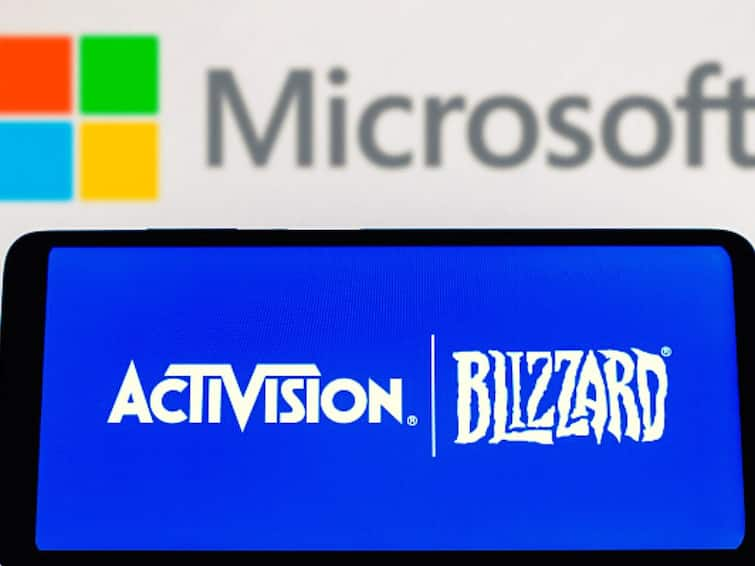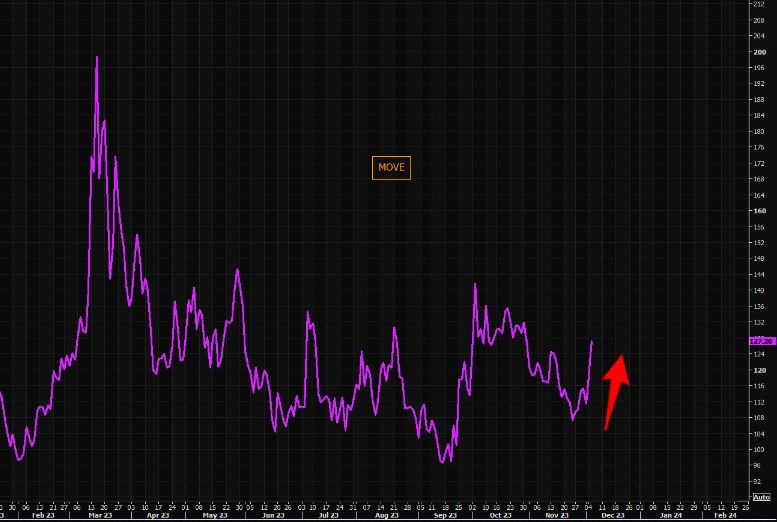FTC To Appeal: Microsoft's Activision Blizzard Acquisition Faces Setback

Table of Contents
The FTC's Arguments Against the Acquisition
The FTC's antitrust lawsuit centers on concerns about market dominance and the potential for anti-competitive behavior. The key arguments presented by the FTC include:
-
Stifling Competition: The FTC argued the merger would grant Microsoft an unfair advantage, significantly reducing competition within the gaming market. This alleged dominance would allow Microsoft to dictate prices and control the availability of games.
-
Call of Duty Exclusivity: A major point of contention was the potential for Microsoft to make popular franchises like Call of Duty exclusive to its Xbox ecosystem. This move would severely harm competitors like PlayStation, potentially driving players towards the Xbox platform.
-
Harm to Innovation and Consumer Choice: The FTC presented evidence suggesting the acquisition would limit innovation and reduce consumer choice in the gaming market. This lack of competition could lead to stagnant development and less appealing options for gamers.
-
Insufficient Judicial Scrutiny: The appeal focuses on the judge's perceived inadequate consideration of the potential for anti-competitive practices. The FTC believes the initial ruling did not fully grasp the long-term ramifications of the merger.
The Judge's Ruling and Microsoft's Response
A federal judge initially dismissed the FTC's attempt to block the Microsoft Activision Blizzard acquisition. Key aspects of this ruling and Microsoft's response include:
-
Insufficient Evidence: The judge ruled the FTC failed to provide sufficient evidence demonstrating the merger would substantially lessen competition. This conclusion was central to the initial dismissal of the case.
-
Microsoft's Victory (Initially): Microsoft celebrated this initial court victory, emphasizing the benefits of the merger for gamers, promising wider access to games and increased innovation.
-
Regulatory Hurdles: This unexpected appeal underscores the significant regulatory hurdles Microsoft still faces in completing this acquisition. The process highlights the difficulties of navigating complex antitrust regulations in the tech industry.
-
Microsoft's Defense: Microsoft's response to the FTC's appeal will likely involve robust legal arguments, further emphasizing the benefits of the merger and refuting the FTC's claims of anti-competitive behavior.
The Implications for the Gaming Industry and Consumers
The FTC's appeal introduces uncertainty into the future of the gaming industry. This has several potential ramifications:
-
Industry Uncertainty: The ongoing legal battle creates a period of uncertainty, delaying or potentially preventing the merger altogether. This uncertainty affects investment, development plans, and the overall stability of the industry.
-
Potential Impact on Game Prices and Access: Depending on the appeal's outcome, game prices, access to certain titles, and subscription service offerings could be significantly impacted. Consumers might face higher prices or limited access to specific games.
-
Precedent for Future Mergers: The appeal could set a crucial precedent for future mergers and acquisitions in the tech sector, influencing how regulators approach similar deals in the future.
-
Consumer Uncertainty: Gamers face uncertainty regarding the availability of their favorite games, the future direction of game development, and the overall gaming ecosystem.
The Role of Call of Duty in the Debate
The immense popularity and potential for exclusivity of Call of Duty played a significant role in the FTC's concerns:
-
Exclusivity Fears: The FTC argued that making Call of Duty exclusive to Xbox would give Microsoft an unfair advantage, severely damaging competitors like Sony PlayStation, who rely on the game's popularity.
-
Market Share Dominance: The concern isn't just about Call of Duty itself, but the potential use of such a popular title to secure a dominant market share for Microsoft's gaming ecosystem.
-
Microsoft's Promises: Microsoft has repeatedly committed to keeping Call of Duty available on other platforms, but the FTC remains skeptical, highlighting the complexities and uncertainties surrounding such promises.
Conclusion
The FTC's appeal against the Microsoft Activision Blizzard acquisition marks a substantial setback for Microsoft and creates considerable uncertainty for the future of the gaming industry. The outcome will have significant consequences for competition, game pricing, and the availability of popular titles such as Call of Duty. While the initial court decision seemed to favor Microsoft, this appeal highlights the ongoing battle over antitrust concerns and the potential for government regulation in significant mergers. Stay updated on this developing story concerning the Microsoft Activision Blizzard acquisition to understand its implications for the gaming world. Keep informed about the latest developments in this critical case.

Featured Posts
-
 Jay Kelly Ola Osa Prepei Na K Serete Gia Tin Tainia Toy Noa Mpompak
May 12, 2025
Jay Kelly Ola Osa Prepei Na K Serete Gia Tin Tainia Toy Noa Mpompak
May 12, 2025 -
 Stallones Limited Role In Stathams New Movie A Strategic Move
May 12, 2025
Stallones Limited Role In Stathams New Movie A Strategic Move
May 12, 2025 -
 Tariff Hikes And The Subsequent Bond Market Volatility
May 12, 2025
Tariff Hikes And The Subsequent Bond Market Volatility
May 12, 2025 -
 Uruguay A Rising Star In International Film Production
May 12, 2025
Uruguay A Rising Star In International Film Production
May 12, 2025 -
 Possible Successors To Pope Francis Examining Leading Contenders For The Papacy
May 12, 2025
Possible Successors To Pope Francis Examining Leading Contenders For The Papacy
May 12, 2025
